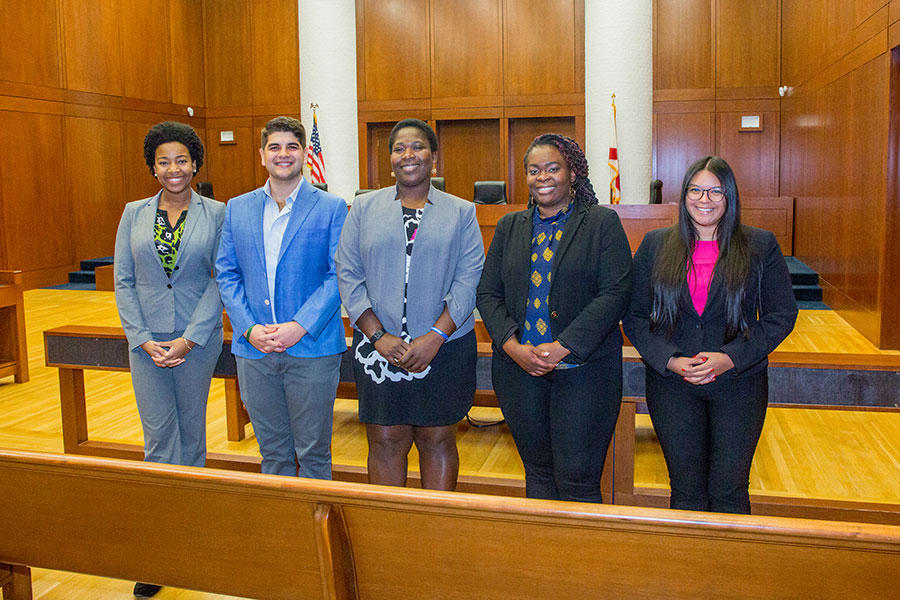
When a parent is incarcerated they don’t stop being a parent. They are forced to find ways to continue life and to minimize consequences for their kids.
This fundamental challenge is a core issue that a group of volunteer law students is tackling in the Gender and Family Justice Clinic at the Florida State University College of Law.
Through their work in the clinic, students see firsthand the very practical value their education has in helping people who are incarcerated navigate the often opaque, bureaucratic corners of the criminal justice system.
Clinical Professor Carla Laroche launched the clinic in January 2019 to address the gap in services provided to people held in prisons and jails, particularly women. “Women who are incarcerated have experienced physical and sexual violence at a disproportionately higher rate than the general public; subsequent challenges often spring from that reality,” Laroche said.
Second- and third-year students put their classroom knowledge to use by visiting women in prison where they lead conversations, hold information sessions and conduct hypothetical scenarios. Students also staff the Injunction Project, which helps people seeking injunctions for protection — frequently in the form of a restraining order against a violent family member or significant other — at the Leon County Courthouse. Laroche developed the project in June 2019 in partnership with Refuge House, a local nonprofit focused on serving domestic violence survivors.
Daynica Harley, a second-year law student from Miami, said the clinic helps put a human face on the law and provides an up-close perspective on criminal justice. Visiting the women at Gadsden Correctional Facility was an eye opener, Harley said.
“I’ll never forget, standing between the two sets of doors — to go into the prison, or back out — and it just sets in that you are really in this place,” she said. “You really start to understand and see the importance of being an empathetic lawyer.”
Second-year student Austin Richard Diaz of Miami agreed. Diaz said face-to-face meetings with those in need has changed his perspective.
“The clinic allowed me to hear and to know not only my clients’ legal needs, but also their stories, how they got where they are,” he said. “Exposure to those things has been a remarkable experience.”
Third-year student Julisa Renaud of Miami noted that oftentimes the women are incarcerated as a result of other needs that have gone unaddressed, such as addiction and domestic violence. Working with them inside prison walls, the students witness firsthand how just a bit of practical legal knowledge can help. Instead of reading about the law, Renaud says she enjoys being able to apply it.
From knowing which forms to fill out to whom they should be directing requests and where they should be looking for answers, the information law students share is often pragmatic but invaluable.
Sometimes that guidance is as simple as helping the women think of different ways to maintain contact with their families.
Gabriella Hernandez, a third-year student from Bonita Springs, Florida, noted that a variety of factors, including shame, can prevent mothers from staying in touch with their kids.
“We remind them that ‘you are not abandoning your child’ while in prison,” she said. “So, we offer ideas like letter writing. Keep pictures. Keep drawings. Find ways to keep your relationship with your child, even if the child can’t visit.”
Hernandez added, “If they continue their connections to their family, they are less likely to re-offend.”
When you consider the children, Laroche said, it’s easier to see how supporting parents who are incarcerated benefits society.
“We focus on factors that push women and girls into the criminal justice system and what happens when they are released,” Laroche said. “My students have approached their work thoughtfully and intelligently. When law students learn firsthand the greater consequences mass incarceration has on parents and their children, the benefits extend well beyond FSU and prisons.”
For more information visit, the Gender and Family Justice Clinic.




